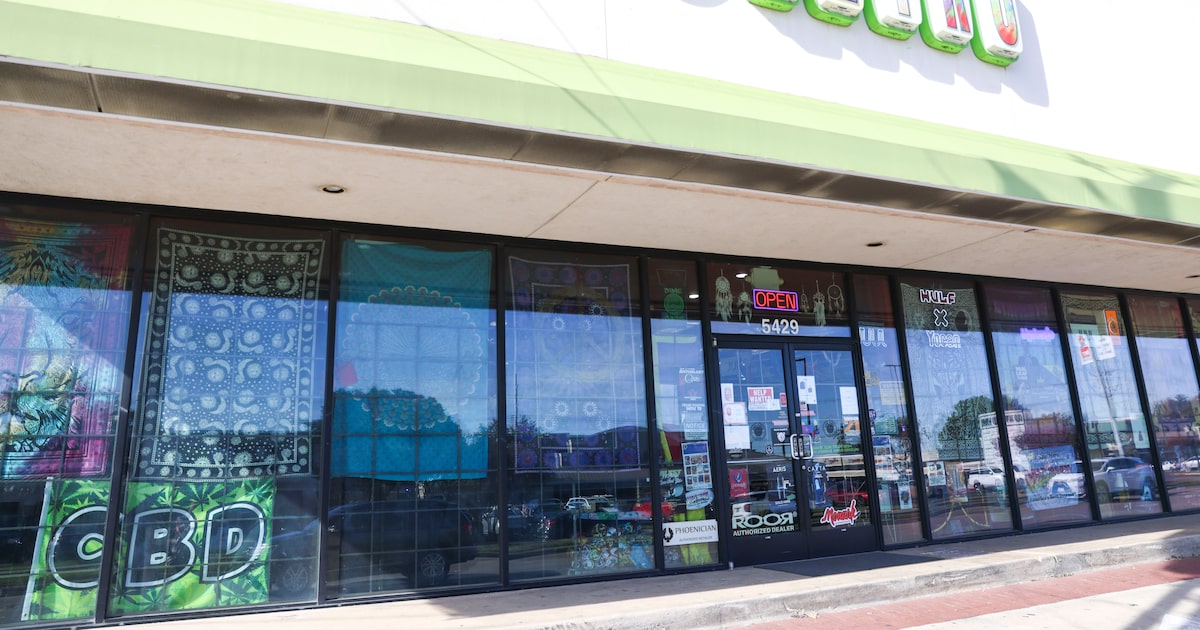AUSTIN _ Texas Gov. Greg Abbott struck down a proposed statewide ban on gummies, vapes and other consumables containing THC just before midnight on Sunday.
In a vague, late-night post on social media, Abbott alluded to the likelihood of a special session but did not specify when or what bills would be on the call.
He did not immediately release a statement regarding his decision on the THC ban.
Abbott, a Republican, has stayed quiet for most of his 10 years in office on the issue of medicinal or recreational THC, or tetrahydrocannabinol, the psychoactive compound in marijuana.
Abbott’s long-anticipated veto of Senate Bill 3 — championed by the Republican Lt. Gov. Dan Patrick and law enforcement across Texas — saved an $8 billion industry with 55,000 employees from being wiped out in six months.
The decision closes out months of increasingly heated debate and speculation over whether Abbott would let Texas ban THC, whether the industry should be regulated instead of wiped out, and if the genie that was let out of the bottle in a 2019 farm bill could be forced back in with total prohibition.
It triggered an instant backlash from Patrick, who pointed out in a statement on X that Abbott had stayed “totally silent” throughout the session on the bill.
“His late-night veto, on an issue supported by 105 of 108 Republicans in the legislature, strongly backed by law enforcement, many in the medical and education communities, and the families who have seen their loved ones’ lives destroyed by these very dangerous drugs, leaves them feeling abandoned,” Patrick said. “I feel especially bad for those who testified and poured their hearts out on their tragic losses.”
He promised to have “much more to say” at a news conference planned for Monday in Austin.
His veto still raises the question of what’s next for the 8,500 retailers who have sold the hemp-based products in vape shops, gas stations, coffee shops and brew pubs since they became legal five years ago.
Raids on legal vape shops continue, with police confiscating inventory they allege contains more THC than the law allows. Customers continue to be at risk for felony charges if they buy a product that is too high in THC unwittingly or police erroneously think their legal hemp product is illegal. The stores must do their own self-policing, with no laws against selling near schools or to minors or marketing to young people.
Unless the lawmakers are called back in for a special session the industry, which lobbied for age limits and testing restrictions as an alternative to a full ban, could go another 18 months with no regulatory structure before the next legislative session starts.
The ban would have criminalized possession, sale and manufacturing of consumable THC products. The proposal was considered one of the strongest in the nation and was similar to legislation vetoed by Florida Gov. Ron DeSantis, a Republican, a year ago.
Supporters of the ban say THC should only be legal in Texas when administered through health professionals for those with medical needs who qualify through the state’s narrow medical marijuana program, known as the Texas Compassionate Use Program.
They accuse retailers of carrying products that are often illegally high in THC and selling to minors.
They included parents who told lawmakers their children suffered psychosis after consuming synthetic THC products. Police detailed how hard it is to enforce regulations on legal THC. Social conservatives said access to intoxicants should be banned while some doctors said THC shouldn’t be easily accessed.
Opponents say prohibition would be a disappointing overreach that defies Texas’ pro-business values and stops residents from accessing life-changing products.
Veterans in particular came out vehemently against the ban, insisting that the state’s recently expanded medical marijuana program doesn’t offer enough options, is not as affordable as hemp-based THC, and doesn’t allow enough of them to qualify for the treatment.
The 2019 loophole
Hemp and marijuana plants are varieties of cannabis. In Texas, products containing THC from marijuana are illegal except for the medical program.
Most THC products derived from hemp plants, however, are legal because of a 2019 state law that allows farming and commercialization of hemp with trace amounts of THC.
Because the law was written for farmers, not retailers, it did not offer the restrictions present in other states’ consumable hemp programs, including strict third-party testing requirements and age limits on purchases.
The 2019 legislation limited the amount of delta-9 THC in hemp plants and products to no more than 0.3% by weight but did not place limits for any other hemp derivatives.
The law removed hemp from the state’s Controlled Substances Act, effectively legalizing all of its derivatives without potency limits on most of them.
In 2023, some lawmakers attempted to ban intoxicating hemp-based products but were unsuccessful.
An alternative to the ban
Abbott could still call lawmakers back for a special session later in the year to deal with the industry.
One idea that gained some traction in the House during the session would save the state’s consumable hemp market from a total ban while reducing it to edibles and nonsynthetic, smokable low-dose flower buds made with hemp grown only in Texas — the market that was initially supposed to benefit from the 2019 farm bill.
Counties could opt out and elect to go entirely “dry” with no hemp sales through elections similar to those allowed for alcohol sales, under the proposal. The entire hemp program would be removed from state health officials’ purview and placed under the direction of the Texas Alcoholic Beverage Commission.
A version of that plan still would have wiped out half of the value of products on the market today, but it stopped short of killing the industry altogether.


